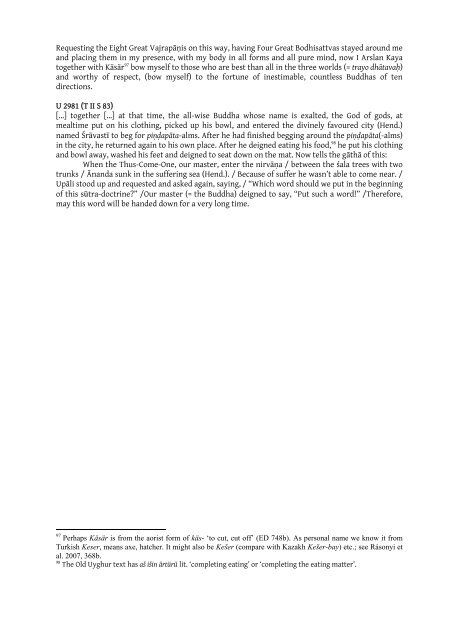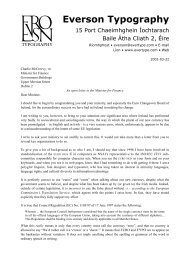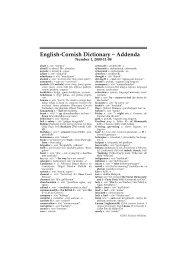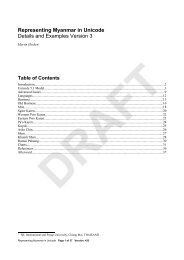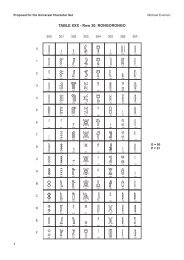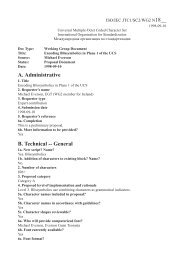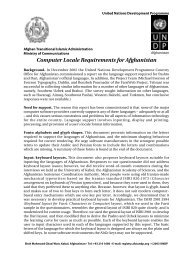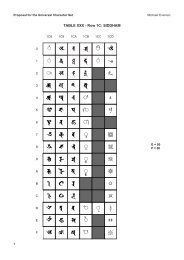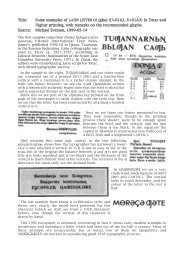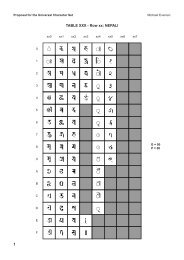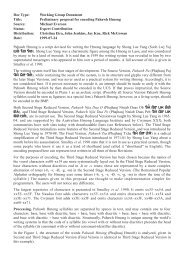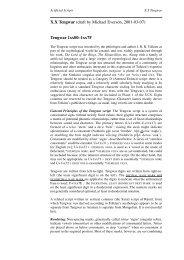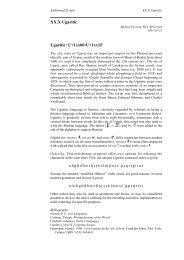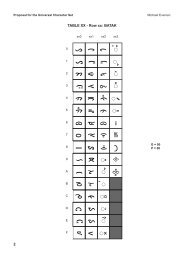The Vajracchedikā-sūtra with gāthās compiled by Master Fu - Evertype
The Vajracchedikā-sūtra with gāthās compiled by Master Fu - Evertype
The Vajracchedikā-sūtra with gāthās compiled by Master Fu - Evertype
Create successful ePaper yourself
Turn your PDF publications into a flip-book with our unique Google optimized e-Paper software.
Requesting the Eight Great Vajrapāṇis on this way, having Four Great Bodhisattvas stayed around me<br />
and placing them in my presence, <strong>with</strong> my body in all forms and all pure mind, now I Arslan Kaya<br />
together <strong>with</strong> Käsär 97 bow myself to those who are best than all in the three worlds (= trayo dhātavaḥ)<br />
and worthy of respect, (bow myself) to the fortune of inestimable, countless Buddhas of ten<br />
directions.<br />
U 2981 (T II S 83)<br />
[…] together […] at that time, the all-wise Buddha whose name is exalted, the God of gods, at<br />
mealtime put on his clothing, picked up his bowl, and entered the divinely favoured city (Hend.)<br />
named Śrāvastī to beg for piṇḍapāta-alms. After he had finished begging around the piṇḍapāta(-alms)<br />
in the city, he returned again to his own place. After he deigned eating his food, 98 he put his clothing<br />
and bowl away, washed his feet and deigned to seat down on the mat. Now tells the gāthā of this:<br />
When the Thus-Come-One, our master, enter the nirvāṇa / between the śala trees <strong>with</strong> two<br />
trunks / Ānanda sunk in the suffering sea (Hend.). / Because of suffer he wasn’t able to come near. /<br />
Upāli stood up and requested and asked again, saying, / “Which word should we put in the beginning<br />
of this <strong>sūtra</strong>-doctrine?” /Our master (= the Buddha) deigned to say, “Put such a word!” /<strong>The</strong>refore,<br />
may this word will be handed down for a very long time.<br />
97 Perhaps Käsär is from the aorist form of käs- ‘to cut, cut off’ (ED 748b). As personal name we know it from<br />
Turkish Keser, means axe, hatcher. It might also be Kešer (compare <strong>with</strong> Kazakh Kešer-bay) etc.; see Rásonyi et<br />
al. 2007, 368b.<br />
98<br />
<strong>The</strong> Old Uyghur text has aš išin ärtürü lit. ‘completing eating’ or ‘completing the eating matter’.


